

COVID-Blog
How COVID-19 has affected the needs of young people living with HIV and young key populations in Indonesia
20 May 2020
20 May 2020 20 May 2020Inti Muda, the Indonesian young key population network, and UNAIDS conducted a survey to assess the needs of young key populations and young people living with HIV (PLHIV) in Indonesia.
The survey found that, due to the COVID-19 measures, 81,5% of the respondents are struggling to sustain their livelihood as they are experiencing loss in their business due to lack of customers, being laid off from work, and the inability to do sex work.
The availability and security to access antiretroviral treatment is seen as an urgent need during this time by the 61% of the respondents who are on antiretroviral treatment. It is concerning that 44% of young people living with HIV have less than 1-month supply of treatment.
A set of recommendations were developed to address the issues found in the survey, including the need to ensure provision of food and other social protection services including shelter for vulnerable populations; explore possibilities to work with local health facilities to lessen frequency of visits in times of COVID-19, including through multi-month dispensing of HIV treatment; and ensure ability to access to counsellors and peer supports virtually.
For more information, check out the full report

COVID-Blog
UNAIDS Executive Director, Winnie Byanyima urges leaders meeting at the 73 World Health Assembly to commit to a peoples vaccine
18 May 2020
18 May 2020 18 May 2020We must not repeat what happened with AIDS treatments where for years those who could not afford them were left to die. @Winnie_Byanyima urges leaders meeting at #WHA73 to commit to a #PeoplesVaccine, owned by humanity, free for everyone. pic.twitter.com/ayAFnyJ2xD
— UNAIDS (@UNAIDS) May 18, 2020

COVID-Blog
UNAIDS negotiates support for frontline GBV counsellors during COVID-19 response
18 May 2020
18 May 2020 18 May 2020Workers on the front lines of the COVID-19 response include not only doctors, nurses and community health workers, but also counsellors and case workers dealing with women and children who have experienced violence in their homes and communities.
As South Africa responded to COVID-19 with a national lockdown, there has been a surge in reports of gender-based violence (GBV). Among the first to know were hotline and online counsellors, helping women and children to cope with violence and find safety.
GBV was already a serious issue in the country and the increase in reported cases placed new pressure on support services and their staff and volunteers. It was recognized that counsellors and case workers could benefit from mental health support to cope with the added pressure.
UNAIDS country office staff working in Kimberley, Northern Cape, approached the ‘Kimberley Supervision Group’, a collective of licensed psychologists operating private practices, to provide pro bono mental health support services to frontline workers. The group developed programmes to reinforce psychological resilience and increase the capacity of GBV shelter carers and counsellors to work with clients who lack access to their usual support networks during the pandemic response.

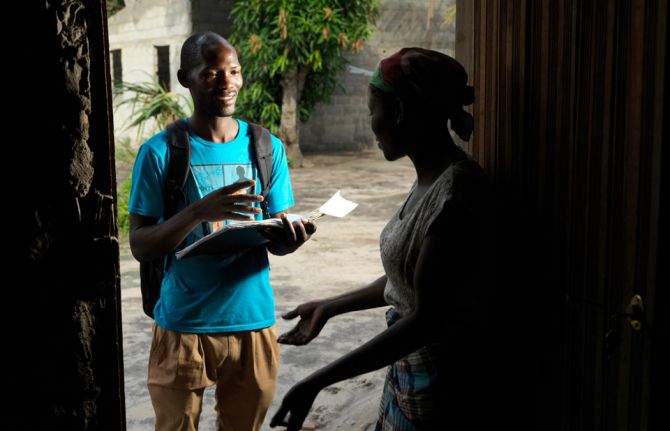
COVID-Blog
UNAIDS urges governments to ensure that HIV service providers from community-led organizations are recognized as essential service providers in the context of COVID-19
18 May 2020
18 May 2020 18 May 2020GENEVA, 18 May 2020—A cornerstone of the response to HIV, community-led health service delivery has become even more critical in the context of COVID-19, as the needs of marginalized community members and the burden on the health sector are increasing, making it vital that continued provision of HIV, tuberculosis and other health services is secured. Community-led organizations are providing a lifeline to underserved, marginalized and hard-to-reach populations around the world.
Physical distancing restrictions have created significant challenges for those needing to access essential services, creating an increased burden on community organizations, which are at the centre of service delivery.
UNAIDS recognizes that community organizations have an unparalleled depth of experience in creating and delivering responses to health and human rights crises within their communities. The many community-led networks and groups that emerged to respond to HIV possess immense practical experience, organizational strength and unparalleled community access for facilitating the delivery of life-saving support, and for influencing people’s real-life practices to better protect their health.

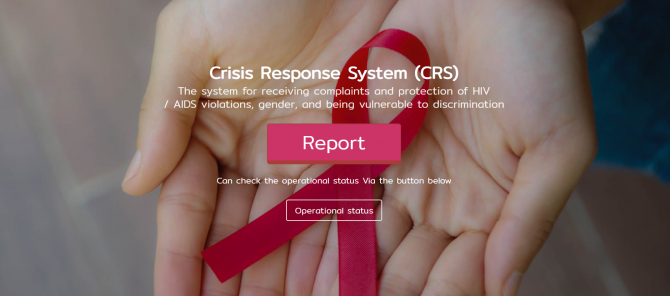
COVID-Blog
An online tool helps report human rights violations during COVID-19 in Thailand
15 May 2020
15 May 2020 15 May 2020In Thailand, UNAIDS is working with civil society networks to monitor and report cases of violence and other human rights violations among key populations and people living with HIV during the coronavirus pandemic.
Using an online tool, community members can report to a “crisis response team” human rights abuses and other forms of discrimination including physical violence, disclosure of HIV status or being tested for HIV without consent, and discrimination at the workplace and at school. The team consists of a multi-disciplinary group of people such as community health workers, health care providers, social workers, lawyers and police officers that can provide immediate assistance including social and health support, mediation with management level at the workplace or education institutes as well as arranging for volunteer lawyers to support victims in court.
At the end of April 2020, 122 case were reported to the CRS team, a significant increase since the implementation of the lockdown measure in the country.
This initiative is based on an already existing community-led crisis monitoring and response group supported by UNAIDS to monitor human rights abuses in the response to HIV in partnership with MOPH and Foundation on AIDS rights (FAR). It also serves as a good example on how HIV related interventions can be applied to the response to COVID-19.

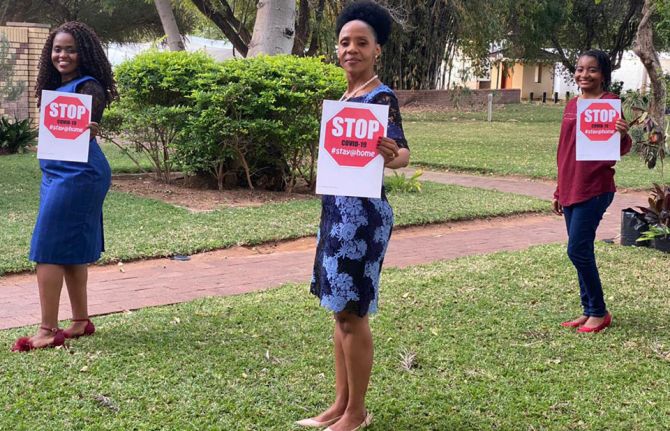
COVID-Blog
UNAIDS Special Ambassador, Neo Masisi, issues awareness message on COVID-19 to young people and people living with HIV in Botswana
14 May 2020
14 May 2020 14 May 2020The First Lady of Botswana and UNAIDS special ambassador for the empowerment and engagement of young people in Botswana, Neo Masisi, has partnered with UNAIDS, young people and people living with HIV to produce a series of videos on COVID-19. The videos have been broadcast on Botswana national television.
“I cannot overemphasize the importance of staying informed,” said Ms Masisi. “As they say, knowledge is power. I encourage people to get their facts from reliable sources.”
In the videos, Ms Masisi outlines the importance of young people and people living with HIV to protect themselves against COVID-19 and to adhere to guidelines outlined by the World Health Organization and the Ministry of Health and Wellness in Botswana.
These include staying at home, practising social distancing, and washing hands. Furthermore, the videos also provide advice to young people on how to stay physically and mentally healthy during this period.
“By doing this video, I wanted to motivate young people in this period of uncertainty – to say, what you can do when you feel anxiety, how to remain productive as a young person and to take care of those around you,” said Lilian Moremi, a career coach for young people who appears in the video alongside Ms Masisi.

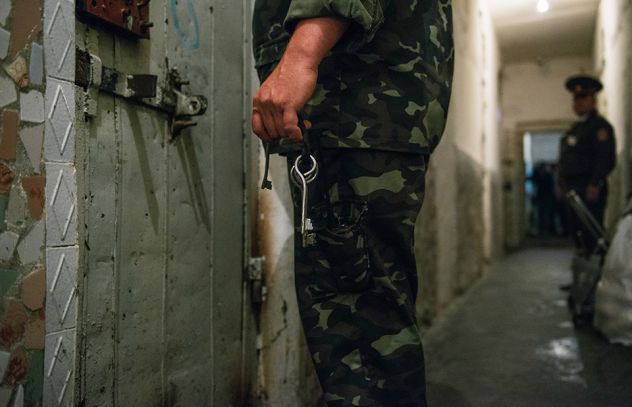
COVID-Blog
COVID-19 in prisons—a ticking time bomb
13 May 2020
13 May 2020 13 May 2020With more than 11 million people in custody worldwide, and 30 million people entering and leaving detention every year, the threat of COVID-19 for people in prisons is very real. In the vast majority of the world’s overcrowded and underfunded prisons and detention centres, physical distancing is simply not an option. In situations where close confinement, shared facilities and spaces and poor hygiene are commonplace, inmates and prison staff are living in constant fear of the ticking COVID-19 time bomb.
UNAIDS, the Office of the United Nations High Commissioner for Human Rights, the World Health Organization and United Nations Office on Drugs and Crime are calling on leaders to make detention a last resort, to close drug rehabilitation detention centres and to decriminalize sex work, same-sex sexual relations and drug use. They are urging countries to release the people who can be released and to consider people at risk of COVID-19, such as older people and people with pre-existing health conditions. Other people, including people sentenced for minor, non-violent offences, pregnant women, women who are breastfeeding and children, should also be considered for release.
Read related blog post - Massive prison amnesty in Myanmar in response to COVID-19


COVID-Blog
UNAIDS ensures continuity of HIV treatment for people living with HIV in Botswana
11 May 2020
11 May 2020 11 May 2020In March 2020, a stock-taking exercise led by UNAIDS, UNICEF and UNFPA, together with the Ministry of Health and Wellness of Botswana and the Central Medical Stores, assessed the availability of antiretroviral medicines, condoms and other contraceptives in the country in anticipation of the COVID-19 restrictions.
The exercise revealed that Botswana required more stocks of ARVs to comply with the three-month dispensing policy set by the government, and that, if a solution were not found, the country would run out of antiretroviral medicines.
As the regular suppliers were not ready to meet the delivery schedules and the major international producers located in India and China were facing restrictions of their own due to lockdowns, the Ministry of Health and Wellness reached out to UNAIDS for assistance in rapidly procuring antiretroviral medicines for the country.
UNAIDS leveraged its partnership with the private sector and contacted different manufactures to gauge their capacity to provide the treatment on time. Botswana needed to acquire 2.3 million doses of adult medication for meeting its needs for the next 9 months.
Even though some pharmaceutical companies had stocks available, restrictions of movement due to the coronavirus pandemic made the delivery impossible. In the end, UNAIDS managed to negotiate with CIPLA the direct procurement of 1 million dosages of medication which was available in their factory in Uganda. UNAIDS negotiated with CIPLA to keep its regular price. The consignment was delivered by truck to Botswana. The rest of the needed medication will be procured by UNICEF through the regular suppliers.
By proactively leading the stock-taking exercise and leveraging its convening capacity, UNAIDS managed to work with the government and the private sector to ensure continuity of HIV treatment for people living with HIV in Botswana.

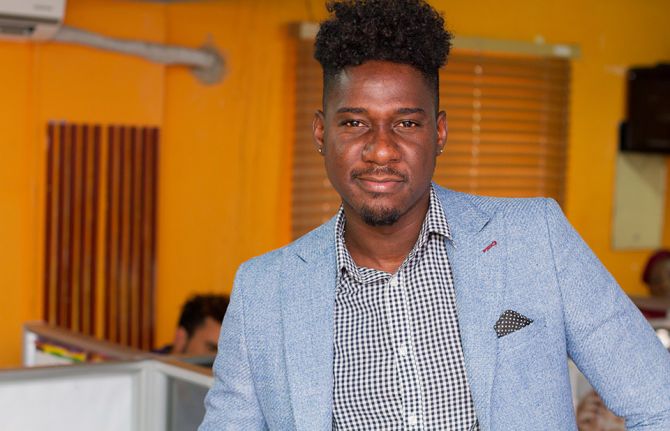
COVID-Blog
Combatting COVID-19 discrimination in Jamaica
08 May 2020
08 May 2020 08 May 2020Community organizations have reported that some COVID-19 stigma has even been directed to people living with HIV. UNAIDS Jamaica has been working to raise awareness among policymakers and through the news media about the importance of building trust with affected people while combatting stigma and discrimination among the wider population.
“Just as with HIV, success in combatting COVID-19 absolutely depends on people’s willingness to get tested and access care. Verbal abuse, violence and intimidation will only chase people away from services,” said Manoela Manova, UNAIDS Country Director for Jamaica.

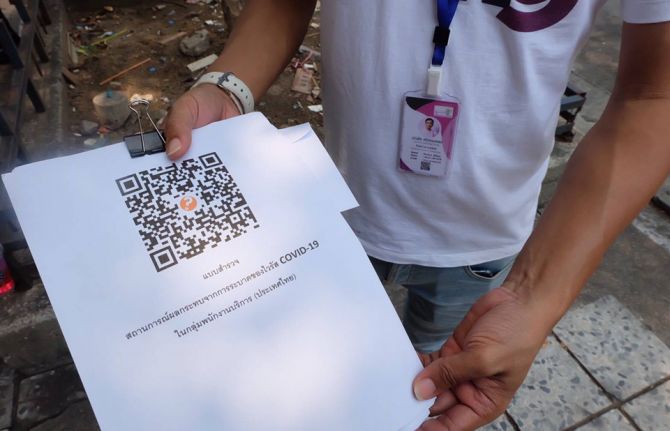
COVID-Blog
Supporting sex workers during the COVID-19 pandemic in Thailand
07 May 2020
07 May 2020 07 May 2020Sex workers in Thailand are facing loss of income and becoming increasingly vulnerable as a result of the restrictive measures put in place to respond to the coronavirus pandemic. Most Thai sex workers are not eligible for the social protection measures included in the government’s stimulus package while non-Thai sex workers don’t have access to any support.
In order to fully assess the impact that COVID-19 is having among sex workers, a community-led rapid assessment was launched in Thailand with support from UNAIDS.
Using a combination of on-line and telephone interviews with sex workers and representatives of sex worker networks around the country, the data collected will be used by UNAIDS to advocate for emergency support to sex workers at local level including leveraging individual donations as well as support from bilateral donors for sex worker-led communities.
The findings will also feed into the United Nations country team’s socio-economic impact assessment and will inform the development of recommendations for immediate actions to support the sex workers’ access to health and livelihoods during COVID-19.
